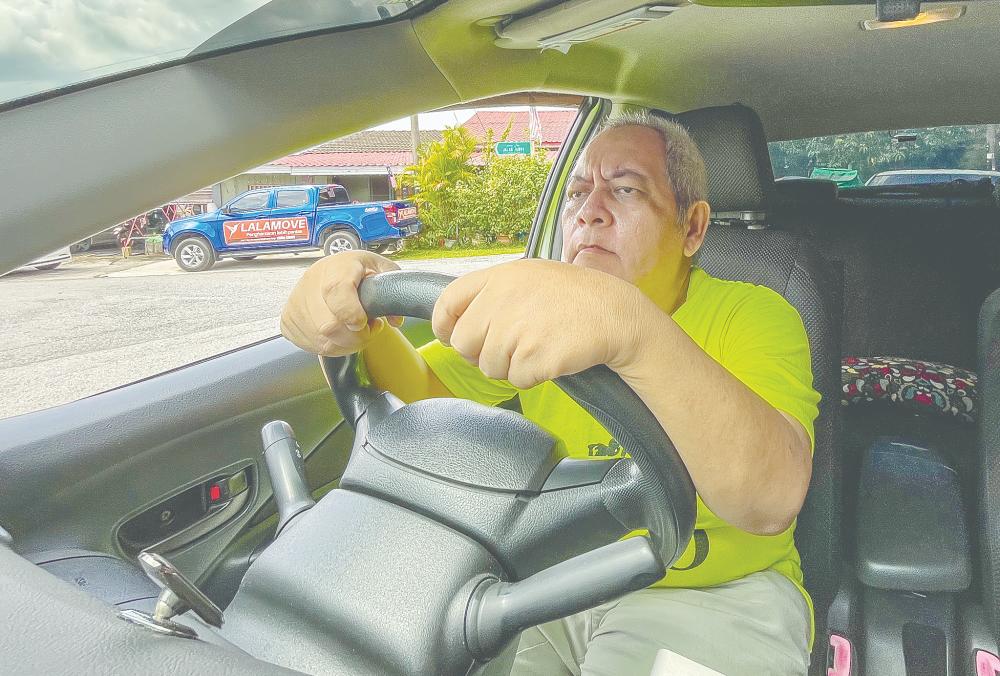PETALING JAYA: Despite the Transport Ministry and the Road Transport Department (RTD) clarifying that no additional requirements will be imposed on senior citizens renewing their driving licences, Universiti Putra Malaysia road safety research centre head Assoc Prof Dr Law Teik Hua has called for mandatory assessments for elderly drivers to improve road safety.
On Dec 18, 2024, RTD director-general Datuk Aedy Fadly Ramli confirmed that the renewal process for senior citizens will continue to follow existing regulations and standard operating procedures under the Road Transport Act 1987.
However, Law said given Malaysia’s ageing population and the rising number of elderly drivers, regular assessments would ensure that those wishing to continue driving are physically and cognitively capable.
He voiced concern over recent road crashes involving senior citizens, citing a Jan 20 incident in which an 83-year-old man crashed his car into a Family Mart outlet in Sungai Petani, Kedah, hitting a parked motorcycle.
A CCTV video of the incident was widely circulated online.
On Jan 9 in Machang, Kelantan, a 63-year-old driver died after losing control of his vehicle and colliding with three other vehicles while travelling from Kuala Krai to Kota Bharu.
Law emphasised that assessing the driving competency of senior citizens could identify those at higher risk due to impairments such as reduced vision, slower reflexes or cognitive decline.
“Tests should evaluate memory, attention, decision making abilities, vision and general health,” he said.
He explained that while most elderly drivers are responsible, the risk of road crashes increases, especially among those over 70.
“In Malaysia, where road conditions and traffic congestion can be unpredictable, older drivers may struggle to react quickly during emergencies or manage complex intersections,” he added.
Law proposed a comprehensive assessment approach focusing on cognitive function, vision, physical health and driving history.
He suggested that evaluations should test reaction times and mobility, with regular eye tests to identify vision issues such as cataracts.
“Reviewing traffic accident records and medical reports would also provide a thorough understanding of an elderly driver’s capabilities,” he said, adding that countries such as Japan and Singapore have significantly reduced road crash rates by implementing regular assessments for elderly drivers.
He suggested measures such as restricted licences, which could limit driving to daylight hours or less busy roads.
He also proposed enhancing public transport and alternative mobility options to support seniors who may no longer be fit to drive.
Law highlighted the importance of community programmes offering rides for seniors to help them stay socially active and access essential services.
While he acknowledged the risk of social isolation for elderly drivers who lose their licences, he proposed government initiatives such as subsidised rides and improved public transport to address the issue.
He also stressed that families play a vital role in monitoring the driving abilities of elderly relatives, encouraging honest conversations about safety, regular health checkups and providing alternative mobility solutions.
“Improving public transport and mobility options will ensure seniors who can no longer drive still have access to essential services,” he said.
Law also underlined the need for a comprehensive approach combining regular assessments and alternative mobility options to enhance road safety for elderly drivers while preserving their dignity and independence.
“It is not about taking away freedom but ensuring that all drivers on the road are safe, regardless of age.”









